
For North Carolina, August marks five months of living in a world upended by COVID-19. By July, more than 100,00 North Carolinians had tested positive for COVID-19. And, like the nationwide trend [1], North Carolina’s communities of color are more affected by the virus.
In North Carolina, 9.6% of the population is Hispanic or Latino.[2] But by mid-June, the Hispanic and Latino community represented more than 44% of North Carolina’s COVID-19 cases. [3]
Prior to the pandemic, Latino communities faced greater health disparities. These disparities are caused by social and economic discrimination. Now, some challenges are proving even greater under the stress of a virus.
“We’re seeing a lack of health insurance, a lack of knowledge on how to navigate the health system, documentation issues, and the majority of community members not receiving stimulus checks,” said Pilar Rocha-Goldberg, President and CEO of El Centro Hispano. “We’re also seeing that our community members are essential workers. They are in construction, restaurants, cleaning services, landscaping and are more exposed to the virus.”
Demand for services and aid increased across the state. So two nonprofits stepped up to make sure their communities were not left behind.
El Centro Hispano
El Centro Hispano (El Centro) advocates for equity and inclusion for Hispanics and Latinos in the Triangle. The center serves more than 7,000 people each year. It supports education, community engagement, health, and economic development.
As the pandemic hit North Carolina, El Centro pivoted. Instead of referring clients to nonprofit partners, they provided direct services. This way they could meet the community’s immediate needs. Supported by COVID-19 relief funding from Blue Cross and Blue Shield of North Carolina, El Centro supplied food, masks and other personal protective equipment. It also offered funds for utilities, rent and medicine for people in need.
They moved all events to virtual platforms to ensure access for community members. And they engaged local Spanish media in a communications campaign to deliver culturally appropriate messaging about COVID-19 testing and prevention.
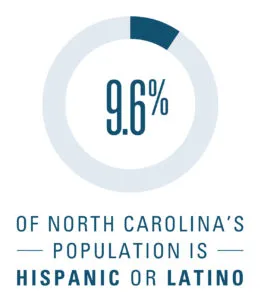
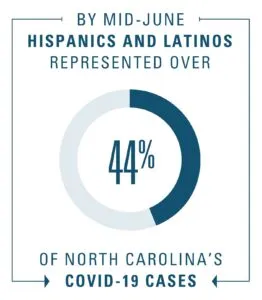
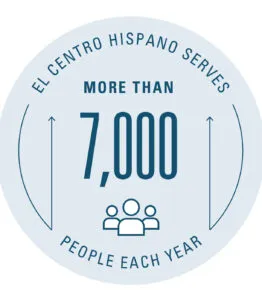
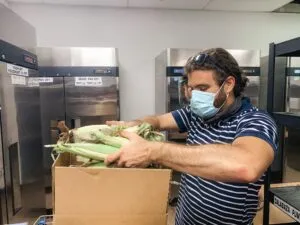
Camino Community Center
has rallied to feed 500% more people during the pandemic with support from Blue Cross NC.
Camino Community Center
In Mecklenburg County, the Camino Community Center (Camino) is a long-standing resource for Latino residents. Since 2003, Camino has served Latino immigrant families in the greater Charlotte area. It offers a health clinic, mental health clinic, food pantry, thrift store, homeless outreach program, and a variety of other health and human services.
Camino serves more than 25,000 people from more than 15 countries each year. During COVID-19, they saw an increase in demand from existing clients and an influx of new clients. So Camino used Blue Cross NC funds to expand food and health services.
During COVID-19, they saw an increase in demand from existing clients and an influx of new clients. So Camino used Blue Cross NC funds to expand food and health services. In partnership with Charlotte Mecklenburg Schools, Camino transformed its warehouse into a delivery site for meals for school-aged children. The organization increased hours at its health clinic. It also began offering telehealth primary care, counseling services and a health education hotline.“
Because of Blue Cross NC, not only have we been able to feed 500% more people during this pandemic,” said Rusty Price, Founder and CEO of Camino. “We have been able to expand our capacity to continue this urgent work in a sustainable way.”
Blue Cross NC is committed to improving the health and well-being of all North Carolinians. We’re proud to support the work of El Centro and Camino. These organizations are going above and beyond to serve their communities during an especially challenging time.
For more information on COVID-19 resources, check out El Centro Hispano and Camino Community Center.
SOURCES [1] CDC: COVID-19 in Racial and Ethnic Minority Groups[1] North Carolina’s Hispanic Community: 2019 Snapshot[1] NCDHHS: NCDHHS Selects Organizations to Address Impact of COVID-19 on LatinX Community
Interested in learning more about health insurance? We have bilingual agents; get a free online quote or contact the Health Plans of NC Independent Agent on this page.
Ready to get started?
Related Articles
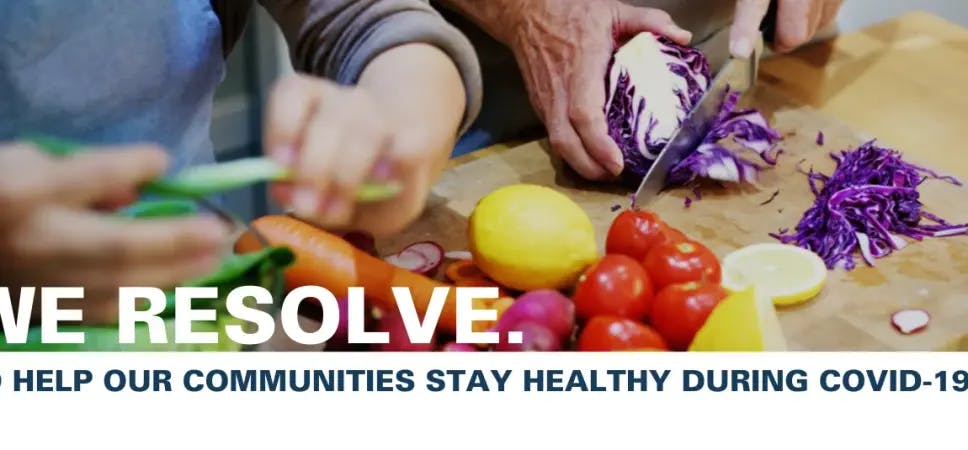
Virtual Heart Health Training Serves Latino Communities
One of our partners, the American Heart Association, is working to make a difference. In 2019, Blue Cross NC began a three-year investment of $750,000 in the association’s programs, including Promotores de Salud. The program trains community ambassadors in the fight against cardiovascular disease, a condition that may increase risk of severe COVID-19 symptoms.
The initial plan was to train about 60 Spanish-speaking ambassadors. Those ambassadors would help educate Latino communities in Charlotte and the Triangle about the dangers of cardiovascular disease. At the same time, the association hoped to increase education about prevention and management of COVID-19.
Blue Cross NC
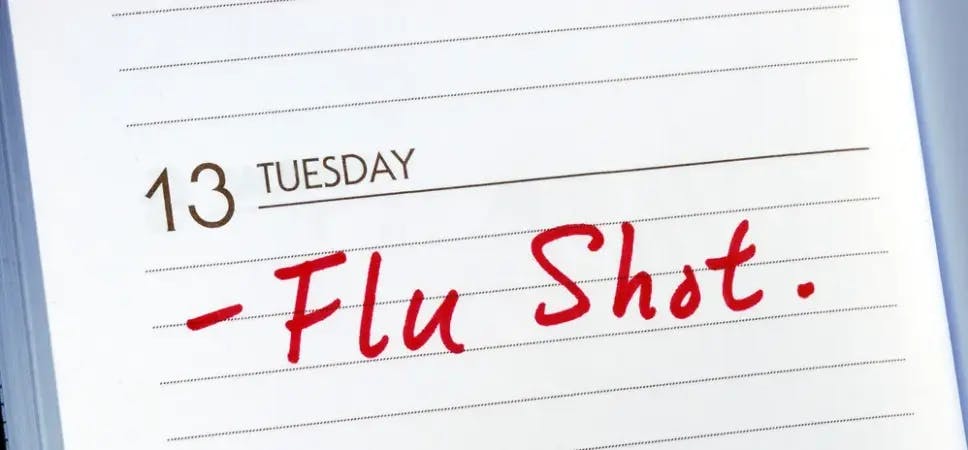
No Flu For You: 5 Flu Shot Myths Debunked
Maybe you’re ready to go and are rushing to Target because they’re offering discounts to shoppers who get the flu shot as an incentive. Great! You know the importance of getting the flu shot, not just for yourself but for your loved ones, too.
But maybe you’re not so ready. Maybe you’ve heard something that’s swayed your opinion this year. Something that scared you or made you think twice. We get it. Every year rumors circulate about getting vaccinated, from the outlandish to the plausible. And it’s hard to know what’s true and what’s not, especially in this age of lightning fast communications.
Allison Bonner
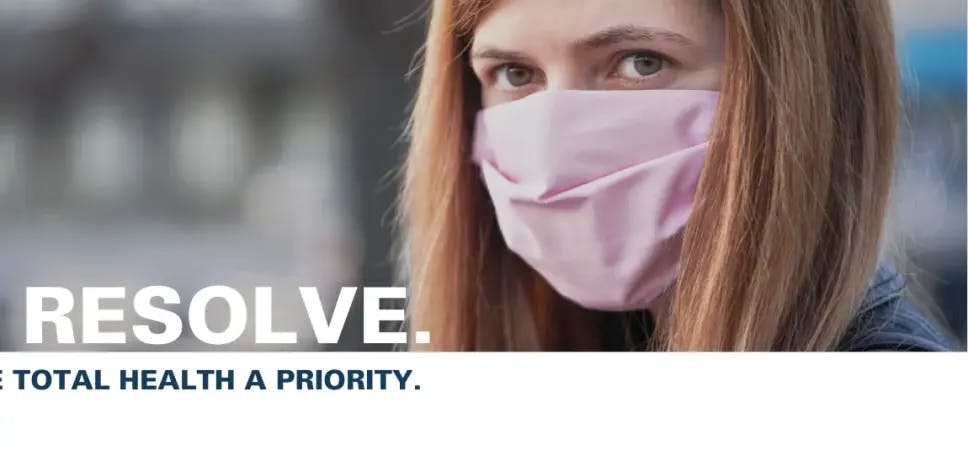
How To Manage OCD & Anxiety During The COVID-19 Outbreak
We talked with Dr. Patrick McGrath, Head of Clinical Services at NOCD to learn more about this behavioral health condition during COVID-19.
Q: What impact has COVID-19 had on people with anxiety and OCD?
Chelsea Moravek and Susan Foosness
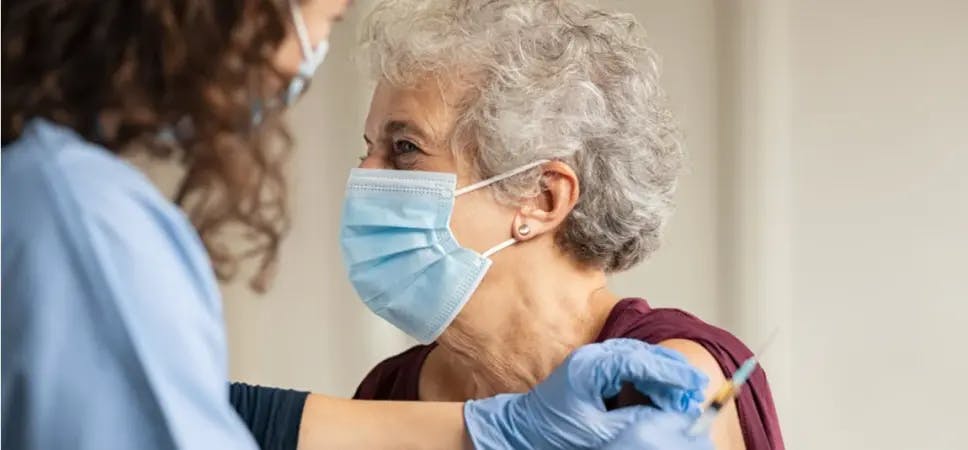
Get The Facts About COVID-19 Vaccines: 5 Rumors Debunked
It’s reasonable to have concerns about a new vaccine.
To help you separate fact from fiction, Blue Cross and Blue Shield of North Carolina Medical Directors are breaking down some of the most common myths.
Blue Cross NC

Why I Chose To Get The COVID-19 Vaccine: One Army Doctor Speaks Out
Dr. Minogue has been practicing medicine for nearly 30 years. He is a medical director at Blue Cross and Blue Shield of North Carolina. He works part-time in the Durham Veteran Affairs Emergency Department. Dr. Minogue also serves in the Army Reserve as an emergency medicine doctor and a volunteer at Samaritan Health Center, a clinic for the underserved in our community.
As a health care professional, Dr. Minogue was one of the first North Carolinians vaccinated in December 2020. Here’s what he shared about his decision to get the COVID-19 vaccine.
Charlene Macielag via Blue Cross NC
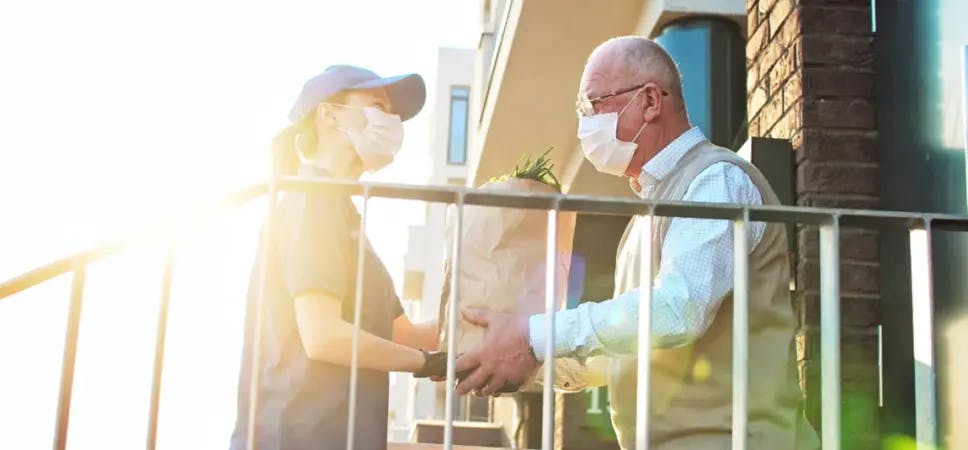
Supporting Our Seniors Amid COVID-19
Adjusting to our new routines during COVID-19 looks different for everyone. For some, it’s fewer trips to the mall or more meals at home. But for at-risk individuals, it can mean complete isolation.
As we now know, COVID-19 causes the most severe health issues for adults over 60, with particularly fatal results for those 80 years and older. This is forcing many senior citizens in our communities to stay indoors. While it helps limit coronavirus exposure, it also limits interactions with friends and family.
Blue Cross NC
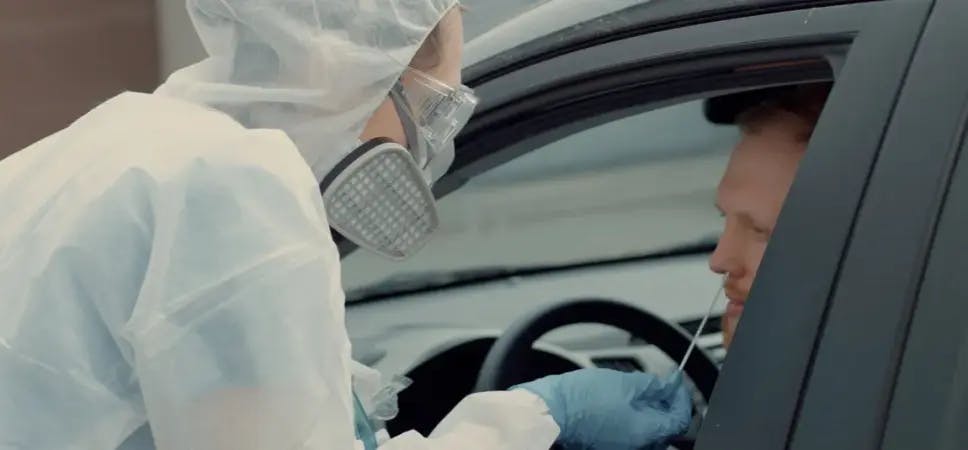
A Timeline Of COVID-19 Symptoms
You’ve been careful. You’ve stayed socially distant. You’ve worn a mask. You’ve washed your hands often. But others weren’t as careful. And when you went to grab takeout last week, you bumped shoulders with someone who had COVID-19. Little did you know, they had just coughed, and you are now infected.
You may not start feeling symptoms immediately, but when you do, what can you expect?
Dr. Larry Wu